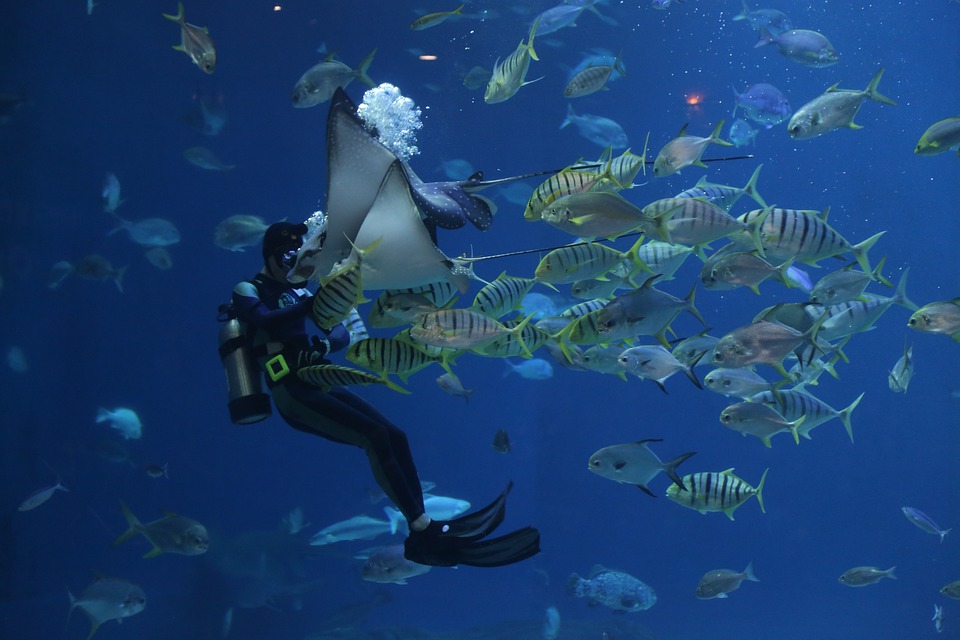Table of Contents
Introduction
Scuba diving is an adventurous and exhilarating activity that offers a unique opportunity to explore the mesmerizing underwater world. It allows individuals to immerse themselves in a world full of vibrant marine life, exquisite coral reefs, and awe-inspiring geological formations. As scuba divers descend into the depths of the ocean, they encounter unseen wonders and experience a remarkable connection with the vast marine ecosystem.
The Dive Into Serenity
Submerging into the crystal-clear waters, scuba divers enter a realm where tranquility and peace prevail. The underwater environment, with its weightless sensation, provides a serene escape from the chaos of the outside world. As you float effortlessly among the marine life, the stresses of daily life melt away, leaving you in a state of pure bliss. The feeling of weightlessness combined with the silence of the underwater world creates a unique and almost meditative experience.
The Colorful Symphony
One of the most enchanting aspects of scuba diving is the opportunity to witness a plethora of vibrant and diverse marine life. The ocean is a living canvas, adorned with a spectrum of colors. From the brilliant blues of tropical fish to the vivid hues of coral reefs, scuba diving allows you to witness a symphony of colors found nowhere else on Earth. The underwater world is a visual feast for the eyes, and each dive presents an opportunity to encounter new and mesmerizing species.
Close Encounters with Marine Giants
Scuba diving offers a chance to come face-to-face with some of the largest creatures in the ocean. From majestic whale sharks to graceful manta rays, these encounters leave divers in awe of the sheer size and beauty of these marine giants. Observing these magnificent creatures in their natural habitats is a humbling experience that highlights the importance of conservation efforts to protect their fragile ecosystems. Swimming alongside these gentle giants leaves an indelible mark on any diver’s memory.
Exploring Coral Reefs
Coral reefs are one of the most biodiverse habitats on the planet, and scuba diving allows individuals to explore these underwater rainforests firsthand. As you navigate through the intricate structures of the coral reef, you will discover a vibrant and interconnected ecosystem. From tiny, colorful reef fish darting in and out of the corals to delicate seahorses swaying with the ocean currents, every inch of the reef teems with life. Scuba diving not only allows you to appreciate the beauty of coral reefs but also highlights the urgent need for their protection.
FAQs Section
How deep can you go scuba diving?
The maximum recommended depth for recreational scuba diving is typically around 30 to 40 meters (98 to 131 feet). However, more advanced divers who possess the necessary training and experience can explore deeper depths, often beyond 40 meters.
Is scuba diving dangerous?
While scuba diving does come with inherent risks, when undertaken with proper training, equipment, and adherence to safety protocols, it can be a safe activity. It is essential to receive proper certification from a recognized scuba diving organization and dive with a buddy to minimize risks.
What equipment do you need for scuba diving?
Scuba diving requires several essential pieces of equipment, including a dive mask, fins, a wetsuit or drysuit, a buoyancy control device (BCD), a regulator, a dive computer, weights, and a scuba tank filled with compressed air or enriched air (nitrox).
Do I need to know how to swim to scuba dive?
It is highly recommended to have basic swimming skills before attempting scuba diving. While you do not need to be an Olympic-level swimmer, being comfortable in the water and having the ability to swim are crucial for your safety and enjoyment during scuba dives.
Can anyone go scuba diving?
Scuba diving is open to individuals of various ages and fitness levels. However, it is necessary to undergo a medical evaluation to ensure you are physically fit for diving. Some pre-existing medical conditions may require clearance from a physician before engaging in scuba diving activities.




